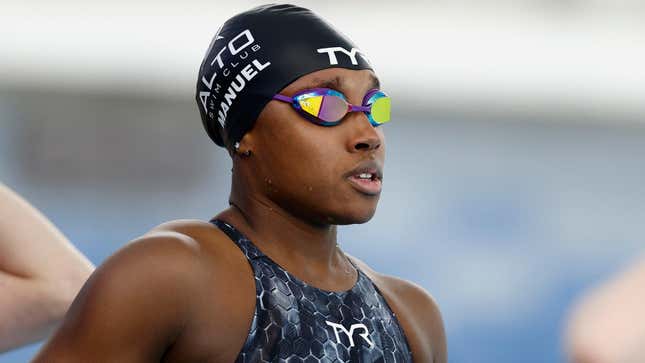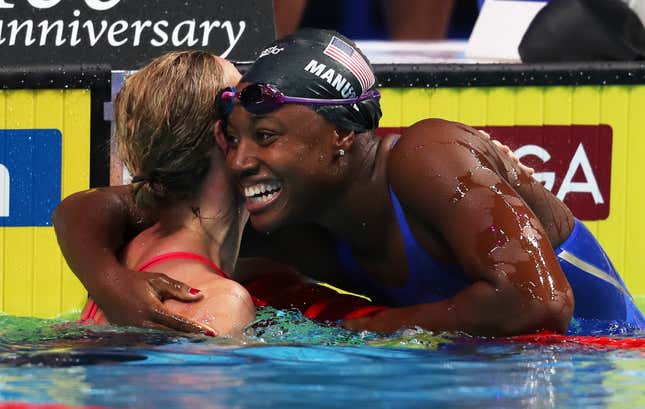
Simone Manuel — also known as “Swimone” — has carved an unforgettable mark in the world of swimming since her breakthrough at the 2016 Rio Olympics. Securing gold in the 100-meter freestyle etched her name in history as the first Black woman to claim an individual Olympic gold medal in swimming.
But beyond the pool, Manuel’s journey is a testament to resilience. Here are a few fast facts about the Olympian.
She has always excelled at swimming
Manuel began taking swimming lessons at a young age, and at four years old, impressed her family with her performance. She began to swim competitively when she was nine years old. She joined Houston’s First Colony Swim Team and became one of the top swimmers.
She’s no stranger to victory
During her collegiate career at Stanford University, Simone Manuel continued her winning streak and obtained multiple NCAA titles. Her contributions to Stanford’s swimming team highlight her dedication to excellence.

She dabbles in philanthropic efforts
Manuel founded The Simone Manuel Foundation to provide education for BIPOC youth and create swim readiness programs and increase water safety awareness in communities of color.
She has an historic Olympic triumph story
Manuel made history at the 2016 Rio Olympics by becoming the first African-American woman to win an individual gold medal in swimming. She achieved this feat in the 100-meter freestyle, sharing this spot with Canada’s Penny Oleksiak.
She’s making a comeback for the Paris Olympics
Manuel revealed that she was suffering from overtraining syndrome, a medical condition that can cause physical and mental symptoms when someone exercises too much without enough recovery time. It forced her to take seven months off swimming, but she’s determined to come back for the Paris Olympics.

